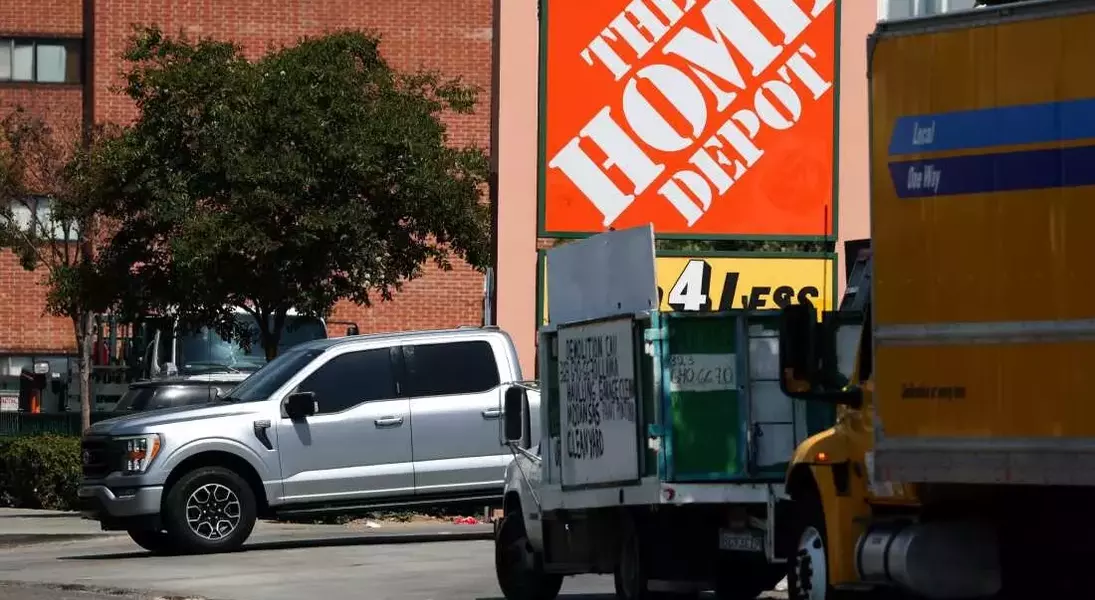




Home Depot finds itself at the center of a contentious debate regarding immigration enforcement, as federal agents have conducted numerous raids targeting day laborers in the vicinity of its stores across the country. Despite these escalating events, the home improvement retail giant has maintained a notable silence, choosing to distance itself from the controversial operations. This position has sparked frustration among day laborer advocates, who argue that the company has a moral obligation to support those who frequent its premises for work, given the long-standing, albeit informal, relationship between the two. The company's hands-off approach raises questions about corporate responsibility in sensitive social and political issues, particularly when its business model indirectly benefits from the presence of this workforce.
On August 6, federal agents in Los Angeles conducted a raid near a Home Depot, emerging from a rented moving truck to apprehend day laborers and food vendors. Ray Hudson, a customer, witnessed the aftermath and expressed dismay, noting the absence of laborers he typically encountered. This incident is just one example of the increasing frequency of such operations near Home Depot locations. The company, however, has consistently stated that it is not notified in advance of these enforcement actions and is not involved in them, instructing its employees to report any suspected operations and not to engage for their own safety.
Chris Newman, legal director of the National Day Labor Organizing Network, voiced his disappointment with Home Depot's passive response. He acknowledged the company's difficult position as a focal point for a polarizing issue but emphasized its responsibility to defend day laborers, who are both patrons and a vital part of the ecosystem around its stores. The relationship between Home Depot and day laborers has evolved over decades. As Home Depot expanded in the 1990s, becoming a dominant force in home improvement, it leveled the playing field for material costs. Consequently, labor became a key differentiator for contractors seeking a competitive edge, leading to a rise in demand for the flexible, cost-effective services provided by day laborers.
Nik Theodore, a leading researcher on day laborers at the University of Illinois Chicago, highlights how the success of Home Depot inadvertently fostered the conditions that led to the widespread reliance on day laborers in the construction industry. With a chronic shortage of skilled workers, immigrants often fill this gap, providing an on-demand workforce readily available outside Home Depot stores. Approximately half of Home Depot's sales are now attributed to professional contractors who frequently utilize these laborers for tasks such as demolition, construction, or cleanup. Additionally, even casual customers, who were empowered by Home Depot's emphasis on DIY projects, now also hire day laborers for smaller repairs or landscaping work. This symbiotic relationship, where both day laborers and Home Depot's bottom line benefit, makes the company's silence even more pronounced.
Despite the moral and ethical questions raised, the immigration raids have not visibly impacted Home Depot's financial performance. Wall Street analysts suggest that day laborers do not constitute a significant customer base directly, and those who employ them would still shop at the chain regardless. The company's stock price has shown resilience, reaching its highest point since February, with a 1.4% increase in U.S. sales between May and August, surpassing previous quarter's results. Home Depot has also maintained a neutral stance on tariffs, avoiding public confrontation with the current administration, unlike some other retailers. While online forums show anecdotal reports from employees about potential sales impacts in affected areas, there is no broad consensus that these raids have significantly altered the company's overall business operations. The delicate balance between corporate interests and social responsibility continues to be a challenge for the retail giant, as it navigates the complex landscape of immigration policy and public expectations.
